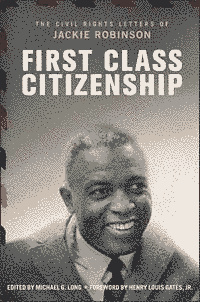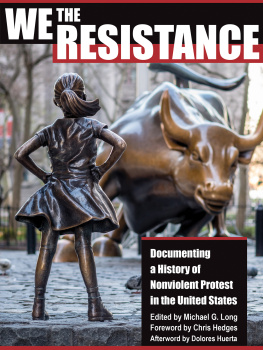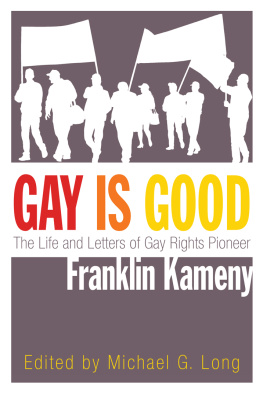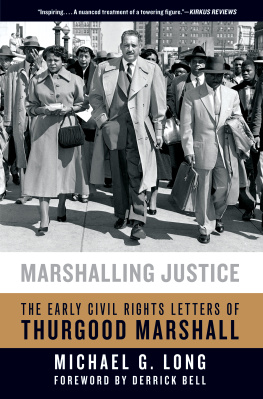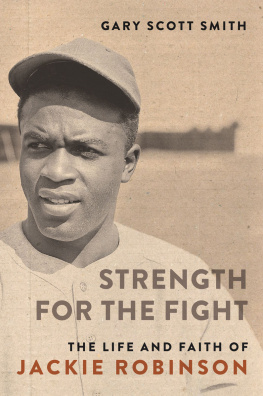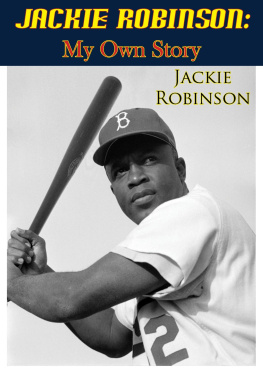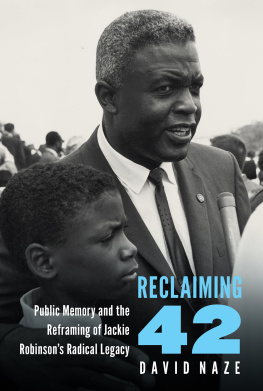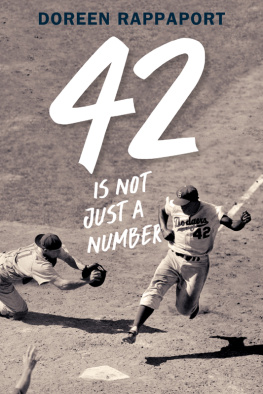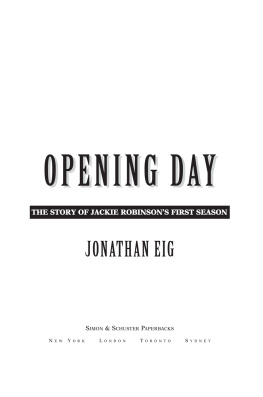This page intentionally left blank
ALSO BY MICHAEL G. LONG
God and Country:
Diverse Perspectives on Christianity and Patriotism
(with Tracy Wenger Sadd)
Billy Graham and the Beloved Community:
America's Evangelist and the Dream of Martin Luther King, Jr .
Against Us, but for Us:
Martin Luther King, Jr. and the State
FIRST CLASS CITIZENSHIP
This page intentionally left blank
FIRST CLASS CITIZENSHIP
THE CIVIL RIGHTS LETTERS OF
JACKIE ROBINSON
EDITED BY MICHAEL G. LONG
Times Books
Henry Holt and Company, LLC
Publishers since 1866
175 Fifth Avenue
New York, New York 10010
www.henryholt.com [http://www.henryholt.com]
Henry Holt is a registered trademark of
Henry Holt and Company, LLC.
Copyright 2007 by Michael G. Long
Letters of Jackie Robinson copyright 2007 by Rachel Robinson.
Licensed by CMG Worldwide. www.JackieRobinson.com [http://www.JackieRobinson.com]
All rights reserved.
Distributed in Canada by H. B. Fenn and Company Ltd.
Permissions credits are listed on pages 34142.
Library of Congress Cataloging-in-Publication Data
Robinson, Jackie, 19191972.
First class citizenship: the civil rights letters of Jackie Robinson / edited by
Michael G. Long.1st ed.
p. cm.
Includes bibliographical references and index.
ISBN-13: 978-0-8050-8710-9
ISBN-10: 0-8050-8710-9
1. Robinson, Jackie, 19191972Correspondence. 2. African American
baseball playersCorrespondence. 3. African AmericansCivil rights.
I. Long, Michael G. II. Title.
GV865.R6A4 2007
796.357092dc22
[B] 2007018621
Henry Holt books are available for special promotions and
premiums. For details contact: Director, Special Markets.
First Edition 2007
Designed by Kelly Too
Printed in the United States of America
1 3 5 7 9 10 8 6 4 2
For Jackson,
who deserves his own page
This page intentionally left blank
I think I've been much more
aggressive since I left baseball.
JACKIE ROBINSON
This page intentionally left blank
CONTENTS
Editor's Introduction
A Note on the Text
. Faith in Democracy: 19461956
. From Faith to Frustration: 1957
. Against Patience: 1958
. Profiles in Question: 1959
. Selling Nixon: 1960
. Wrong About Kennedy?: 1961
. From the Hall of Fame to Hallowed Ashes: 1962
. Back Our BrothersExcept Adam and Malcolm: 1963
. The Campaign Against Bigotry: 1964
. A Rockefeller Republican: 19651966
. Sharp Attacks, Surprising Defenses: 1967
. The Politics of Black Pride: 1968
. Moving Forward in Our Struggle: 19691972
Abbreviations
Notes
Location of Letters
Permissions Credits
Acknowledgments
Index
This page intentionally left blank
EDITOR'S INTRODUCTION
"Have you seen the Jackie Robinson file?"
I was conducting research on President Richard Nixon at the National Archives in Laguna Beach, California, when the archivist Paul Wormser approached my desk with that beautiful question.
It was December 2005, and while the Robinson file was beyond my immediate research topic, I could not resist the delicious temptation.
"I have not," I replied. "But I'd like to."
Paul quickly returned with the file, and for the next several hours I was just spellbound, completely immersed in digesting and copying a significant body of letters between Robinson and Nixon.
The topics ranged from the personal to the politicalfrom shared lunches to Eisenhower's race politicsbut most of them centered on Robinson's hard-hitting efforts to advance a civil rights agenda within the Republican Party in the 1950s and 1960s.
I was hooked because this was a Jackie Robinson I did not know. Growing up in central Pennsylvania in the 1970s, I had been exposed to benign biographies that depicted him as a smiling second basemana nice young man who had "turned the other cheek" when facing those who were furious about Branch Rickey's experiment of breaking the color barrier in Major League Baseball.
Of course, the elementary-school books offered the standard statistics, too, and so I also learned that even while enduring countless taunts, this smiling young man had earned a remarkable .311 career batting average and helped to lead the Brooklyn Dodgers to six National League pennants and one World Series championship.
Call it truncated historyand part of the reason for my shock and delight as I plowed through the Nixon-Robinson correspondence.
Here, at last, was a Jackie Robinson far beyond the baseball diamond. An angry black man who grabbed a pen and wrote rage-filled letters about segregation and discrimination. A fiery prophet who rebuked politicians for telling African Americans to exercise patience and forbearance when pursuing their constitutional rights. A fervent patriot committed to using his celebrity status and considerable resources to overcome the racial divide right now so that his children would have a brighter, bolder future.
It was as if I was meeting a newor perhaps anotherJackie Robinson.
At first I was not sure what to do with the letters, but after returning to my hotel and watching yet another television program on athletes "gone bad," I resolved to share that precious file with the wider world. We deserve a much better role model from professional sports, I thought, and who better than Jackie Robinson?
Within the week I asked Rachel Robinson, Jackie's widow, for permission to publish the letters, and she kindly agreed. But as I continued my research at archives across the country, especially at the Library of Congress, which holds the Jackie Robinson Papers, I began to crave a bigger project.
The letters to Nixon were a good start, but Robinson wrote civil rights letters to so many major historical figures (Malcolm X, Barry Goldwater, Martin Luther King, Jr., John F. Kennedy, Hubert Humphrey, Adam Clayton Powell, Jr., Nelson Rockefeller) and about so many controversial topics (black power, the Vietnam War, divisions within the civil rights movement). And his letters sparked substantive replies that reflected America's running conversation about politics and race and economics. How could I not share all these letters, too? I went back to Rachel, who has long touted Jackie as an informal civil rights leader, and she graciously agreed to the wider project.
Her generosity is to our benefit, because the more clearly we can hear Jackie Robinson's voice from beyond the baseball diamond, the better we will understand the complicated history of race and politics in the United States, the more deeply we will sense our successes and failures to establish equal justice under law, and the fairer we will be when assessing the rich legacy of this American icon.
Other scholars and writers have come to this realization long before I have, and Alfred Duckett, Sharon Robinson, Arnold Rampersad, Jules Tygiel, and David Falkner have led the way in introducing us to Jackie Robinson's life after his retirement from baseball. But their efforts notwithstanding, the general public has largely ignored or dismissed Robinson's civil rights advocacy beyond the playing field, preferring in stead to focus on the bright smile of a youthful baseball player. At best we will occasionally recall his understandable hostility toward fellow players, umpires, and the media during the latter days of his baseball career. But this fiery image, just like his civil rights legacy, has been far from enduring.

